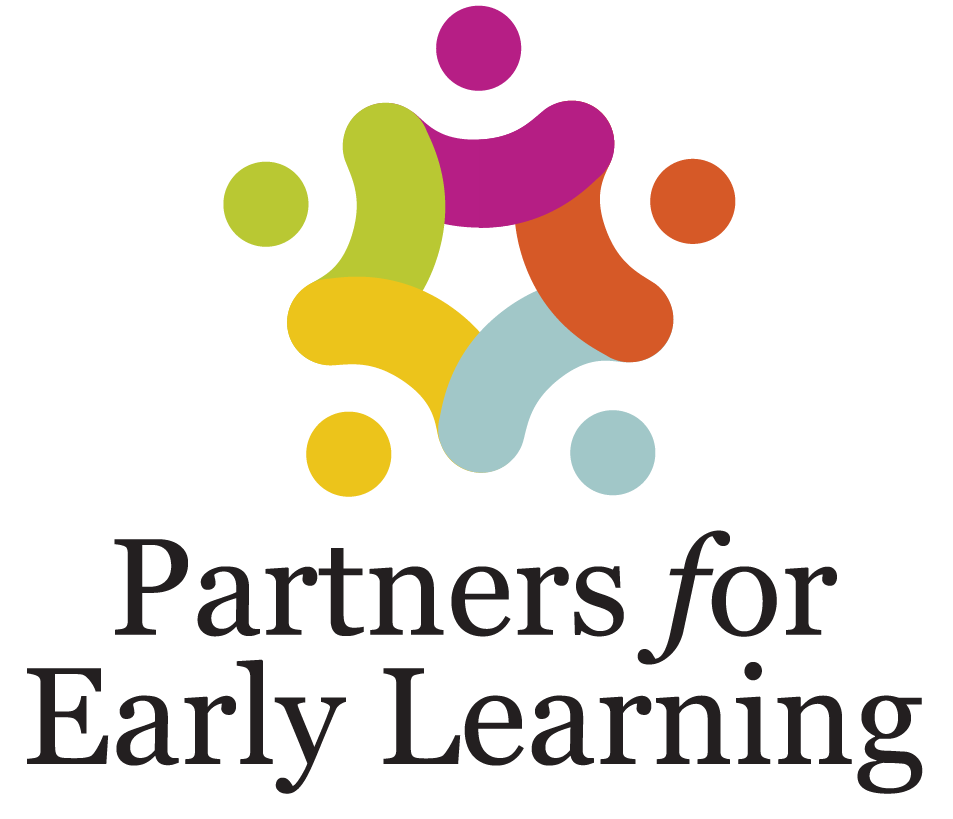Age
Age Milestones For 0-6 Months

Physical: Overview (0-6 Months)
Physical development includes everything from the growth of the five senses–vision, hearing, touch, taste, and smell–to a child’s overall ability

Touch: Feels Pain (0-1 Month)
It was once believed that premature newborns could not feel pain. Today, however, researchers have located specific pathways in the
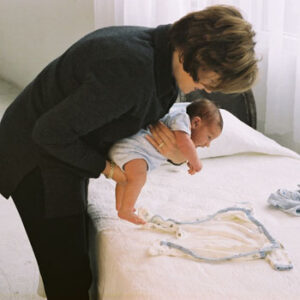
Vision: Color Vision Is Limited (0-1 Month)
Newborns do see the world in some color, but they have trouble discriminating blues from greens and reds from yellows.
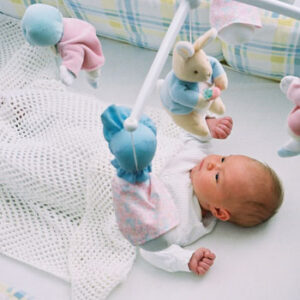
Can Take Swipes at Dangling Objects with Hands (1-5 Months)
In their first month or two, babies attempt to reach for dangling toys or other interesting objects (this is called
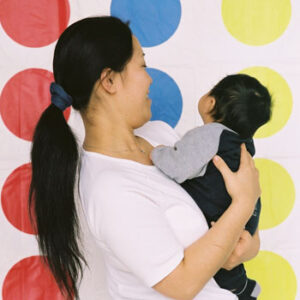
Vision: Attracted to High-Contrast Patterns or Edges (0-2 Months)
Several experiments show that babies will turn toward patterns with high contrast and away from simple patterns with little contrast.

Vision: Focuses on Objects from 8 to 15 Inches Away (0-2 Months)
Babies are born with limited vision, but soon after birth, they can focus on objects about 8 to 15 inches
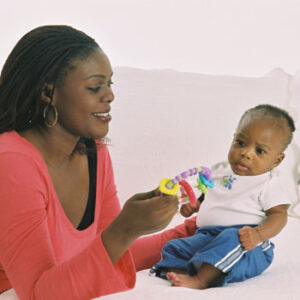
Vision: Tracks Slowly Moving Objects (0-2 Months)
Although vision is limited at first, moving objects catch newborns’ attention. Babies are likely to track an object with their eyes
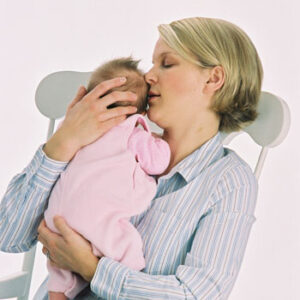
Hearing: Well-Developed, except for Very Quiet Sounds (0-3 Months)
Even before birth, babies have been shown to respond to sound stimuli within a limited range of sound frequencies. At
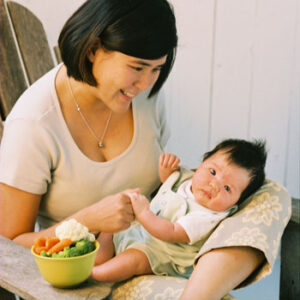
Smell: Prefers Sweet Smells over Bitter or Acidic Smells (0-3 Months)
Newborns are attracted to the smell of breastmilk, and experiments show that they will vigorously turn away from bitter or
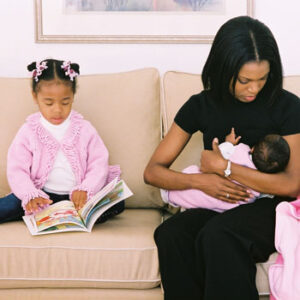
Smell: Recognizes Scent of Mother’s Breastmilk (0-6 Months)
Young babies are attracted to the scent of their mothers’ breastmilk and prefer it to other women’s milk. In one
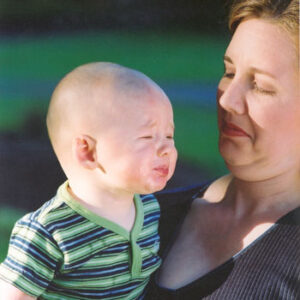
Taste: Prefers Sweet over Bitter Tastes (0-3 Months)
Infants are born with some basic taste preferences. In one research study, babies would suck faster and stronger for sweet
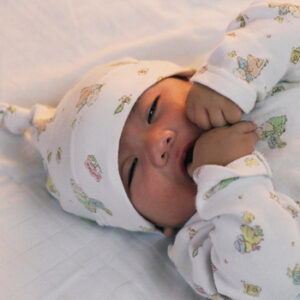
Displays Rooting and Sucking Reflexes (0-4 Months)
Babies are born with a variety of innate reflexes. The rooting reflex prompts a baby to turn his head from
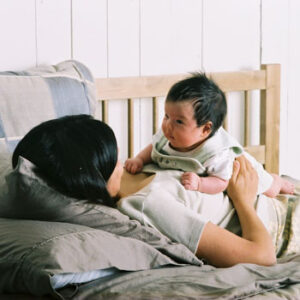
Can Raise the Head from a Prone Position (0-2 Months)
Soon after birth, most babies can raise their heads for brief periods when lying prone (on their stomachs). This is
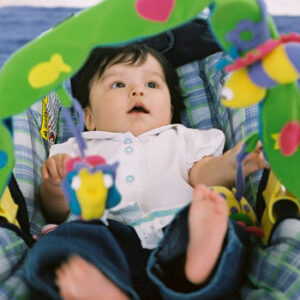
Vision: Can Discriminate among Basic Colors (1-5 Months)
Infants soon after birth have limited color vision, and they have trouble discriminating blues from greens and reds from yellows.
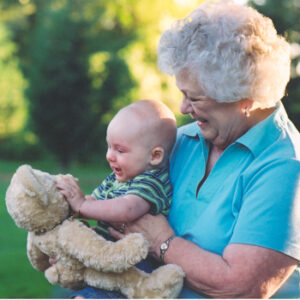
Vision: Can Focus on Objects up to 3 Feet Away (1-5 Months)
By the end of a baby’s first month, she can focus briefly on objects up to three feet away. Over
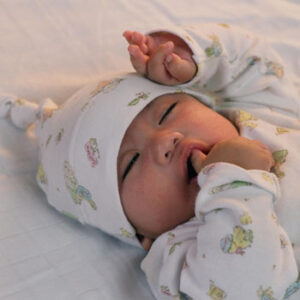
Brings Hand to Mouth (1-3 Months)
During the first few months of life, babies persistently attempt to bring their hands to their mouths but have not

Opens and Shuts Hands (1-3 Months)
During the first 3 months of life, babies’ hands and arms develop rapidly. Initially, their hands are often tightly clenched
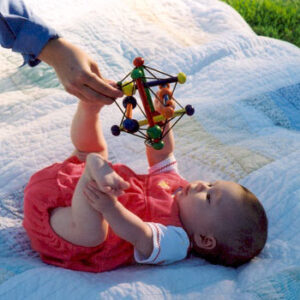
Grasps and Shakes Hand Toys (1-4 Months)
Between their first and third months of life, babies gain the skills to grasp and shake hand toys; they may
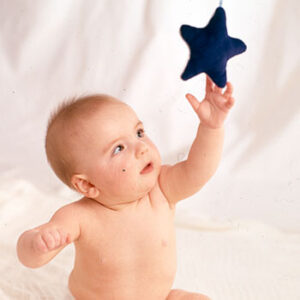
Vision: Can Use Movement to Identify Objects (1-5 Months)
One of the challenges babies face is discriminating against separate objects from what surrounds them. Experiments have shown that by
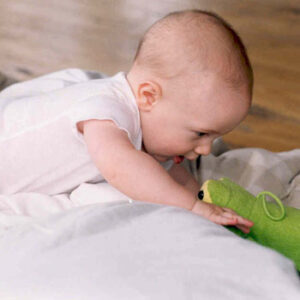
Touch: Can Distinguish between Lumpy and Smooth Objects with Mouth (1-7 Months)
Within their first few months, babies can integrate some types of sensory information. One experiment showed that babies can match
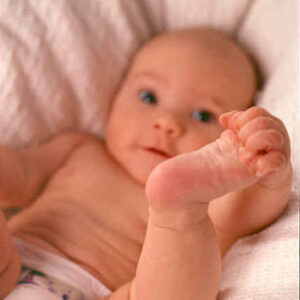
Can Reach Voluntarily for Things (3-6 Months)
In their early months, infants may reach for things, but these early attempts (called pre-reaches) are generally uncoordinated swipes at
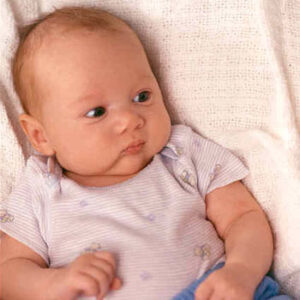
Vision: Depth Perception Begins to Develop (3-7 Months)
Babies as young as 2 to 3 months have shown some form of depth perception. One method researchers have used
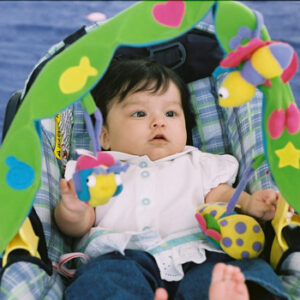
Vision: Develops Full-Color Vision (4-7 Months)
Color vision doesn’t fully develop until about four months. After four months, babies can distinguish between even closely related colors,
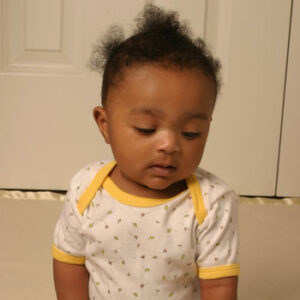
May Sit Easily without Support (5-7 Months)
Babies’ growing curiosity and abilities lead them to try new things, so parents and caregivers should arrange the environment to
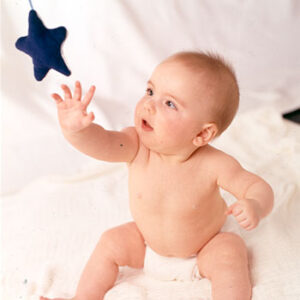
Can Reach Out and Grasp Moving Objects (5-8 Months)
Around 5 months, most babies become more skilled in their reaching and grasping attempts. This includes the ability to grasp
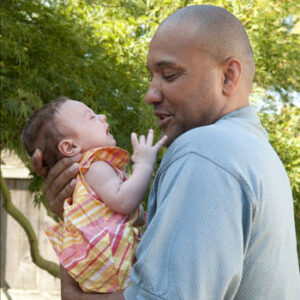
Social and Emotional: Overview (0-6 Months)
Do babies have feelings? Do they have the ability to understand the feelings of others? The surprising answer from the

Book of Jenny: How Babies Communicate
Babies try to tell us what they want or need before they can talk. Part of the fun of parenting
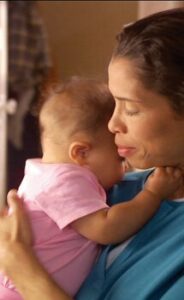
Responding to Baby (0-12 Months)
What is your baby thinking? Well, the answer is – A LOT! That’s right, from the minute your baby is
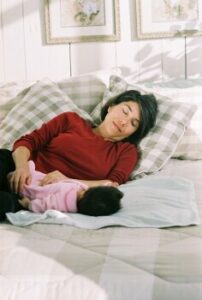
Goodnight, Baby (0-14 Months)
Will your baby ever sleep through the night? The answer is yes! Some nights you need to get up and
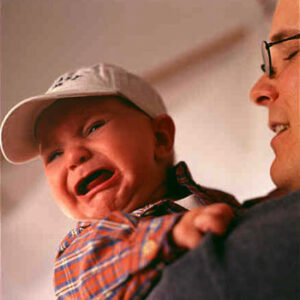
Able to Cry in Response to Another’s Cry (0-3 Months)
Babies treat the sounds of crying differently from other sounds. In one study with 34-hour-old infants, infants cried often when
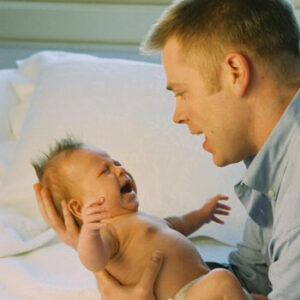
Can Display the Emotions of Distress and Sadness (0-3 Months)
When they feel “distress” or are uncomfortable or in need, even newborn babies have ways of letting their caregivers know,

Capable of Showing Contentment and Joy (0-3 Months)
At birth, infants begin to show basic emotional behaviors. To demonstrate this, researchers carefully studied infants’ facial expressions as they
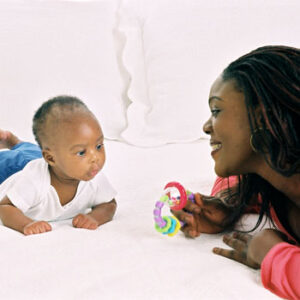
Capable of Showing Interest (0-3 Months)
At birth, infants begin to show basic emotional behaviors, including interest. Interest expressions include wide eyes, focused attention to something,
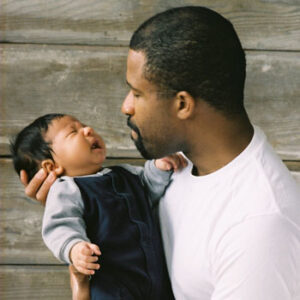
Expresses Disgust (0-3 Months)
Babies will generally show disgust in response to unpleasant tastes. Disgust expressions, which begin in the first few months, can

Shows Frustration and Anger (0-4 Months)
Very young babies demonstrate frustration when they are struggling to complete a developmentally difficult task or when they are prevented
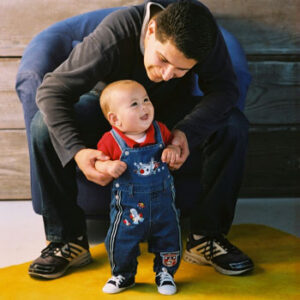
Capable of Imitating Emotional Facial Expressions of Others (0-5 Months)
Soon after birth, babies are already capable of imitating the emotional expressions they see on the faces of others. In
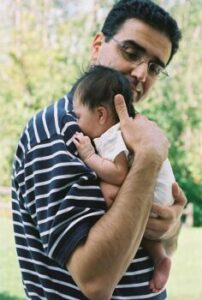
Born to Feel (0-6 Months)
Learn what a sad face means It’s a beautiful summer day. Dad and his 10-week-old son Ryan are relaxing on
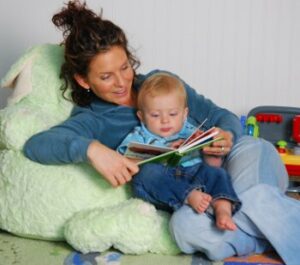
Reading to Babies (0-6 Months)
It’s never too early to begin reading to your child. Reading together not only helps your child learn the sounds
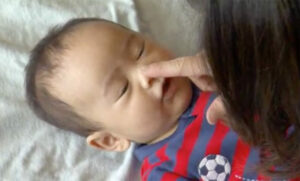
Recognizing Baby Cues (0-9 Months)
In your first 6 months together, getting to know your baby means learning to read their cues. Some cues can
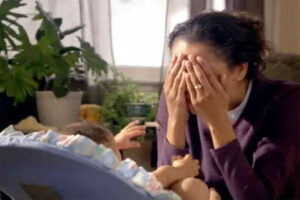
Bubble Talk: Why Caring Responses Make a Difference (1-12 Month)
Babies communicate with their parents and caregivers in many ways. Responding to your baby’s cues positively will help you create
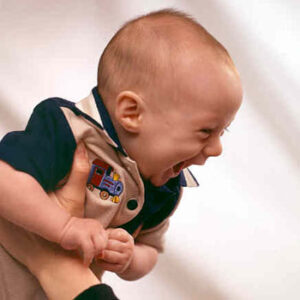
Begins to Develop Social Smile (1-3 Months)
Babies are capable of smiling at birth. At first, these expressions are not truly “smiles” in response to social interactions
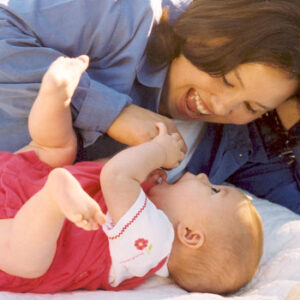
Enjoys Social Play with Caregivers (4-7 Months)
Infants are interested in human faces shortly after birth, and they take huge steps in their abilities to interact with
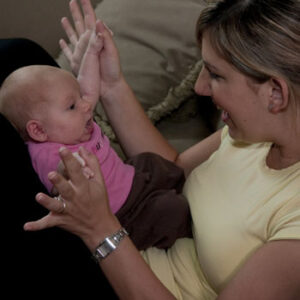
Cognitive and Learning: Overview (0-6 Months)
Cognition refers to how we think–and much more. It includes perception, coordinating information from our senses, memory, speech, and problem-solving.
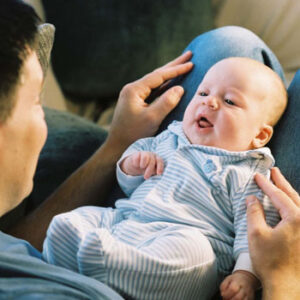
Capable of Imitating Facial Gestures (0-2 Months)
Newborns are not “blank slates” incapable of interacting with others. Newborns only hours old have been found to copy facial
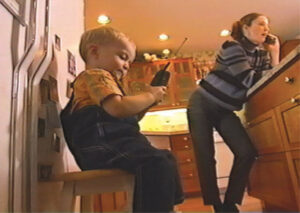
Copycats: How Children Learn from the Actions of Others
Fortunately for parents, young children are amazing students. They’re so good at learning, they do it even when we don’t
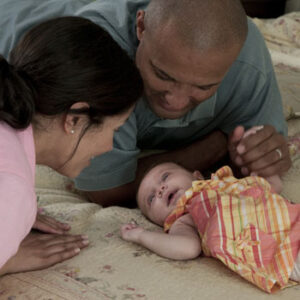
Can Differentiate between Familiar and Unfamiliar Faces (0-3 Months)
Infants quickly become experts at scanning and identifying faces. A newborn infant can distinguish between its own mother’s face and
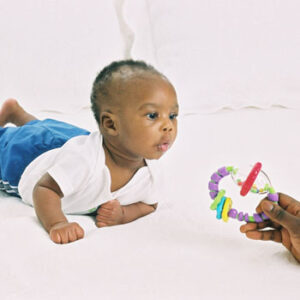
Capable of Mathematical Reasoning: a Quantitative Skill Termed Numerosity (0-3 Months)
At birth, infants can process some types of mathematical information. More specifically, this ability involves distinguishing between different numbers of
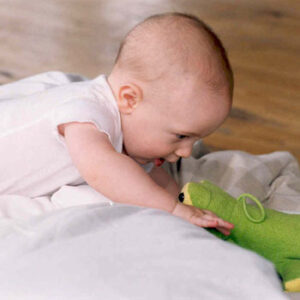
Recognizes that Objects Remain the Same Size and Shape Even If They Are Distant (0-5 Months)
When an object like a ball is moved some distance away, the eye perceives the ball as getting smaller, even
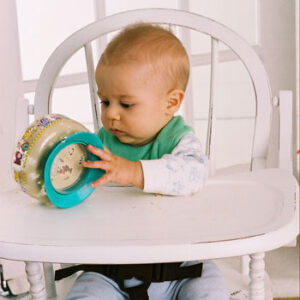
Capable of Making Predictions, Creating and Testing Hypotheses about the Real World (0-6 Months)
Infants are active learners at birth. They are especially good at using their developing physical skills to interact with the

Capable of Demonstrating Certain Types of Memory (0-7 Months)
All the physical, emotional, and face-to-face experiences that infants have regularly form a network of unconscious expectations and reactions to

Cross-Modal Perception: Can Relate What They Feel with What They See (1-4 Months)
For infants to make sense of the sights, sounds, and feelings that buzz around them, they need to coordinate this
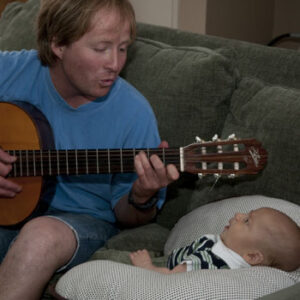
Language Learning Begins (1-6 Months)
It’s never too early to enjoy a “conversation” with your baby! Neuro-imaging studies show us that long before a baby
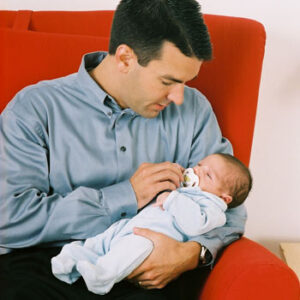
Cross-Modal Perception: Can Relate What They Hear with What They See (2-4 Months)
Young infants are also capable of relating what they hear with what they see. One study tested two-month-old infants’ ability
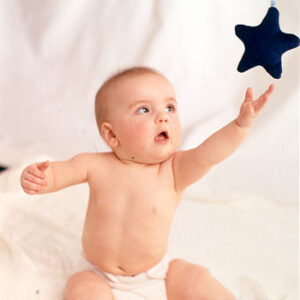
Struggles To Get Objects That Are Out Of Reach (3-6 Months)
At 4 months, babies begin coordinating their emerging perceptive abilities to struggle to get objects that are out of reach.

Explores the World (4-7 Months)
Although newborns react primarily by reflex, babies begin making choices and actively exploring the world around them at 3 to
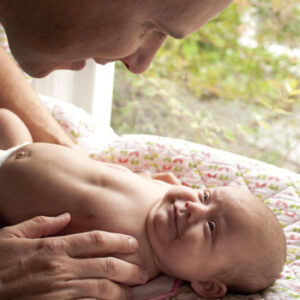
Language and Communication: Overview (0-6 Months)
People are born to talk to each other, and nowhere is this more apparent than in a developing child. Babies
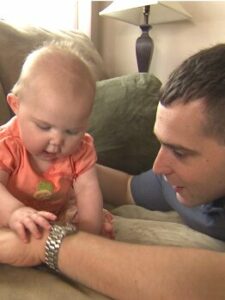
Getting In Tune with Baby
How do I know what my baby wants? Everyone knows that babies cry when they are upset. They smile when
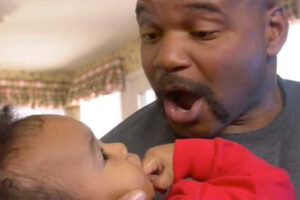
Parentese: Why It’s Never Too Early to Start a Conversation (0-6 Months)
Researchers call the special way we talk to babies “motherese” or “parentese.” This sing-song speech, often accompanied by exaggerated facial
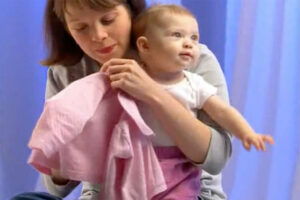
Talking to Baby (0-12 Months)
How do you talk to your baby? Would you say, “hellooooo, sweeeeetie! How’s my baaabeee? Such a pretty baaabeee.” Does
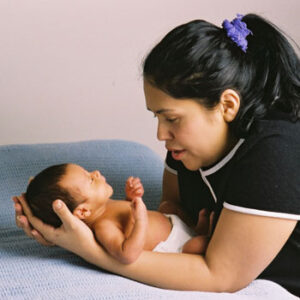
Prefers Sounds of Familiar Language to Those of Other Languages (0-3 Months)
At birth, infants can respond to human voices. They are also capable of distinguishing between the sounds of different languages,

Can Discriminate between Syllables within Words (0-4 Months)
Within the first few days after birth, infants are sensitive to the stress patterns or rhythms of the words they
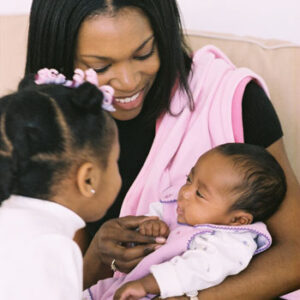
Can Discriminate Mother’s Voice from Other Women’s Voices and Prefers Her Voice to Other Women’s Voices (0-4 Months)
At birth, infants can respond to human voices. They are also capable of distinguishing among the voices of different people,

Capable of Spontaneous “Ooh” Sound (0-4 Months)
In their first months, infants start making sounds other than crying. Cooing sounds often occur when a baby is quiet,

Heavy Reliance on Communication through Crying, which Can Occur for Several Hours a Day (0-4 Months)
For the first several months, crying is an infant’s most common form of vocalization. Some cries may sound different from
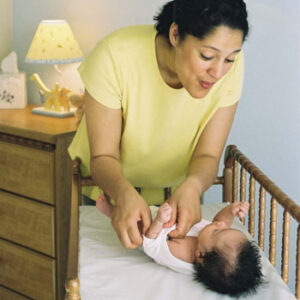
Pays More Attention to Human Voices than to Other Sounds (0-4 Months)
At birth, infants show the ability to respond to human voices and speech. In one experiment, infants only a few

Smiles at the Sound of a Familiar Voice (0-4 Months)
Babies prefer human voices to other sounds and are especially drawn to the voices of their caregivers. After 1 month,

Talking with Infants (0-9 Months)
Infants start communicating right from birth. Crying, smiling, vocalizations, looking at your face, and looking away are all ways your

Babbling Commences (1-3 Months)
Many infants begin babbling routinely at around 4 months, often entertaining themselves for long periods by producing new sounds (for
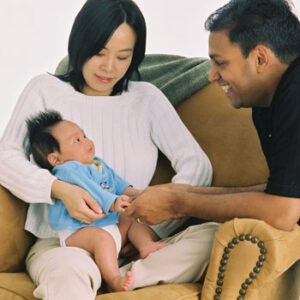
Attempts to Imitate Some Sounds (1-4 Months)
After 2 months, some infants begin repeating a few of the exaggerated vowel sounds they hear when their caregivers speak
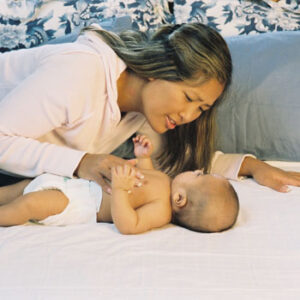
Coos Back and Forth with Caregiver (1-4 Months)
In their first months, most babies begin to make cooing sounds. Some believe infants at this age begin to participate
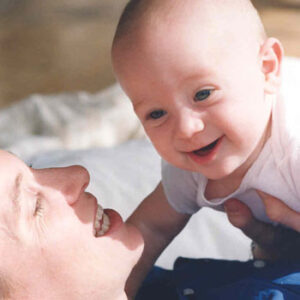
Begins Grouping Language Sounds into Specific Categories (1-6 Months)
Long before babies begin to learn specific words, they engage in an important sound-sorting process that enables them to distinguish
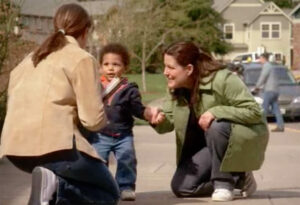
Careful, Frank: Communicating through Emotional Expressions (2-24 Months)
As adults, we do this all the time to obtain feedback from the world around us, but it’s fascinating to
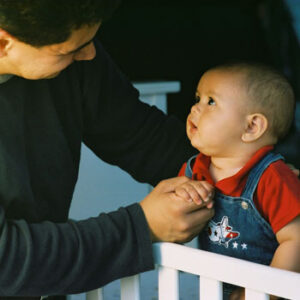
Begins Lip Reading (2-8 Months)
When infants are spoken to, they will often pay special attention to a person’s lip movements. Even at 10 to
